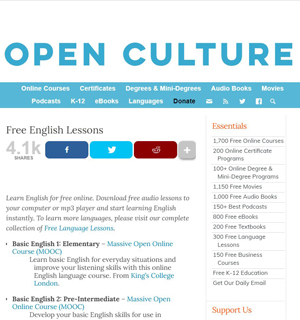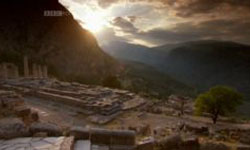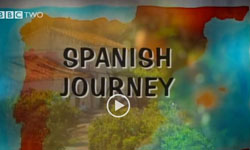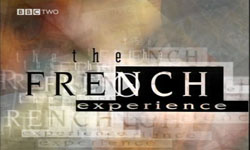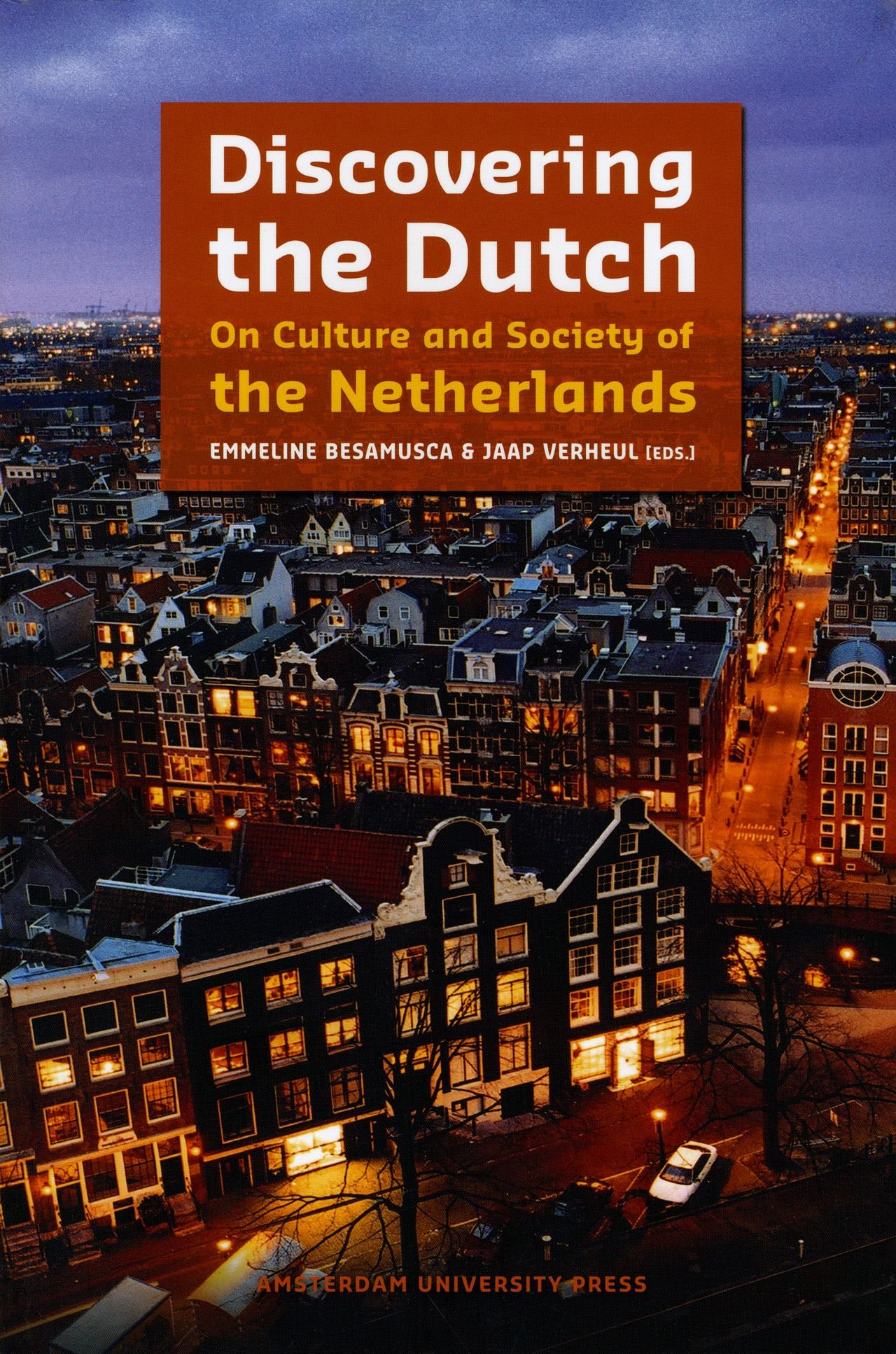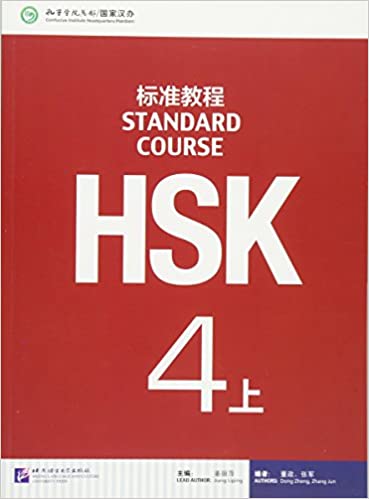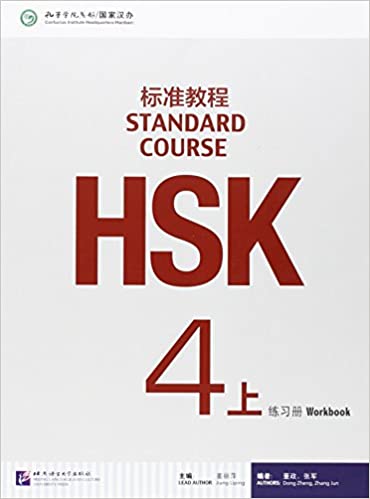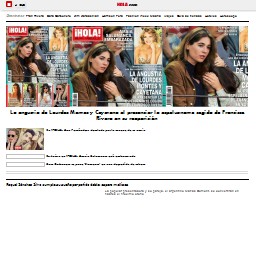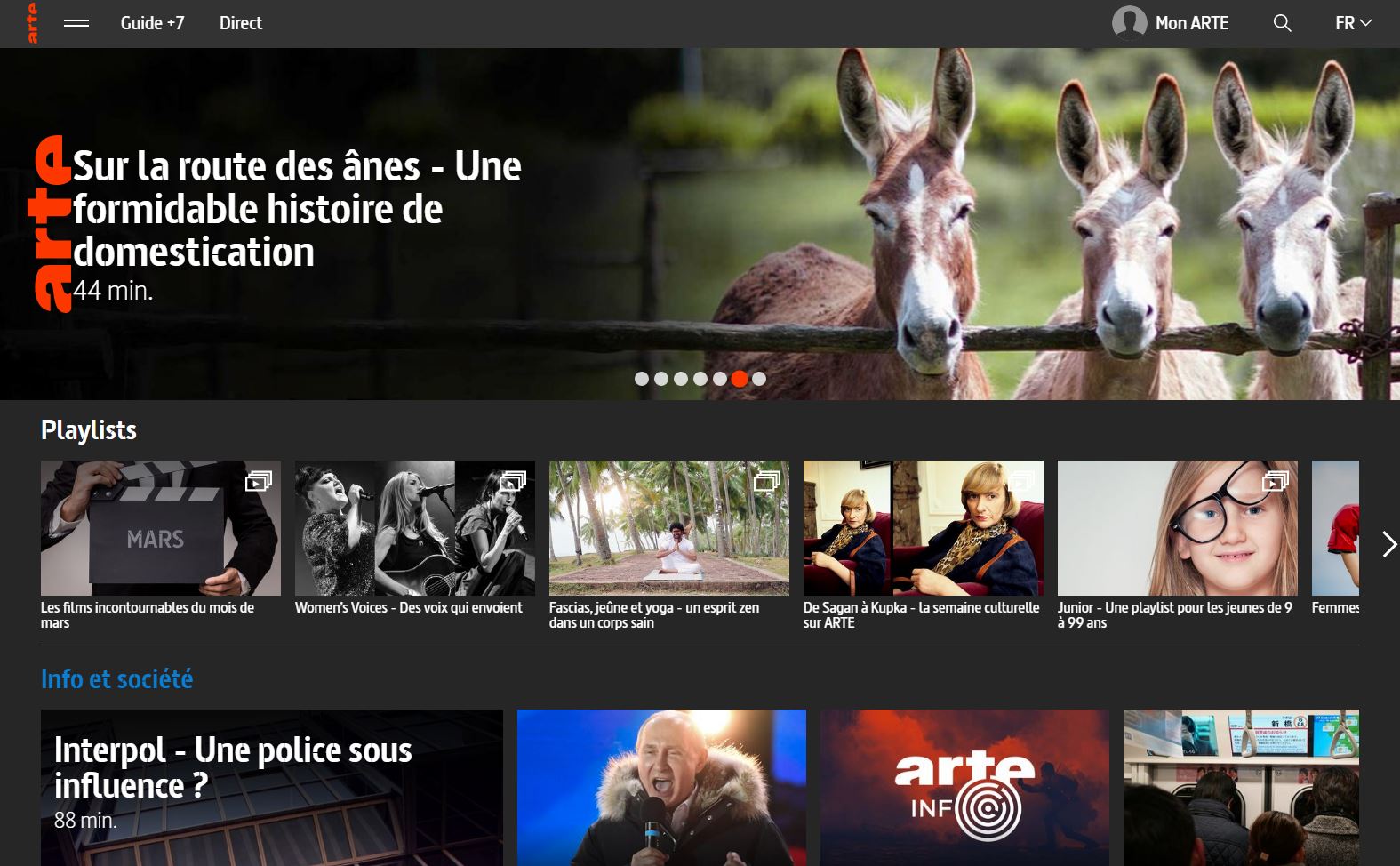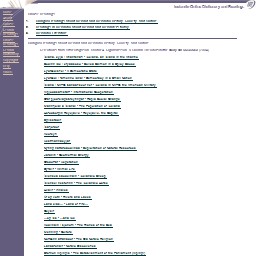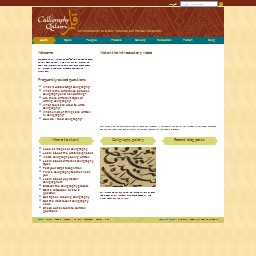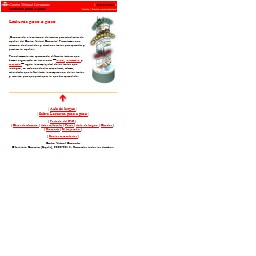Select one or more of these popular tags:
-
Open Culture
-
List of free resources for learning general English, including podcasts on listening, speaking, writing and grammar
List of free resources for learning general English, including podcasts on listening, speaking, writing and grammar
Eminent classical historian Robin Lane Fox embarks on a journey in search of the origins of the Greek myths. He firmly believes that these fantastical stories lie at the root of western culture, and yet little is known about where the myths of the Greek gods came from, and how they grew.
- British-Sign-Language
- British-Sign-Language
- Classical Civilisation
- BSL subtitles
- 90
Eminent classical historian Robin Lane Fox embarks on a journey in search of the origins of the Greek myths. He firmly believes that these fantastical stories lie at the root of western culture, and yet little is known about where the myths of the Greek gods came from, and how they grew.
-
Actualiteit belicht - 21
-
Ministerie van Buitenlandse Zaken
Information about politics, law, culture, economy, drugs etc. May/June 1996
Information about politics, law, culture, economy, drugs etc. May/June 1996
-
Deutsch Plus 2
-
BBC
Short reports and interviews on various aspects of German culture and society. Suitable for improving listening comprehension skills on an intermediate to advanced level and obtaining information about Germany and its people. NB: 1-hour, one-off, stand-alone video production, content NOT related to the popular 20-part series "BBC Deutsch Plus" about the Romanian refugee Nico Antonescu, who is learning German while working for a TV station in Cologne.
- Course Videos
- No subtitles
- 60
Short reports and interviews on various aspects of German culture and society. Suitable for improving listening comprehension skills on an intermediate to advanced level and obtaining information about Germany and its people. NB: 1-hour, one-off, stand-alone video production, content NOT related to the popular 20-part series "BBC Deutsch Plus" about the Romanian refugee Nico Antonescu, who is learning German while working for a TV station in Cologne.
Travel and culture guide in Spanish for beginners and intermediate learners.
- Course Videos
- No subtitles
- 60
Travel and culture guide in Spanish for beginners and intermediate learners.
Travel and culture guide in Spanish for beginners and intermediate learners.
- Course Videos
- No subtitles
- 60
Travel and culture guide in Spanish for beginners and intermediate learners.
A short introduction to everyday Greek for absolute beginners, covering the most useful travel basics. Set in Athens, the Peloponnese, northern Greece, Santorini and Crete, the series also gives insights into Greek life and culture.
- Course Videos
- English subtitles
- 20
A short introduction to everyday Greek for absolute beginners, covering the most useful travel basics. Set in Athens, the Peloponnese, northern Greece, Santorini and Crete, the series also gives insights into Greek life and culture.
A short introduction to everyday Greek for absolute beginners, covering the most useful travel basics. Set in Athens, the Peloponnese, northern Greece, Santorini and Crete, the series also gives insights into Greek life and culture.
- Course Videos
- English subtitles
- 20
A short introduction to everyday Greek for absolute beginners, covering the most useful travel basics. Set in Athens, the Peloponnese, northern Greece, Santorini and Crete, the series also gives insights into Greek life and culture.
A short introduction to everyday Greek for absolute beginners, covering the most useful travel basics. Set in Athens, the Peloponnese, northern Greece, Santorini and Crete, the series also gives insights into Greek life and culture.
- Course Videos
- English subtitles
- 20
A short introduction to everyday Greek for absolute beginners, covering the most useful travel basics. Set in Athens, the Peloponnese, northern Greece, Santorini and Crete, the series also gives insights into Greek life and culture.
A short introduction to everyday Greek for absolute beginners, covering the most useful travel basics. Set in Athens, the Peloponnese, northern Greece, Santorini and Crete, the series also gives insights into Greek life and culture.
- Course Videos
- English subtitles
- 20
A short introduction to everyday Greek for absolute beginners, covering the most useful travel basics. Set in Athens, the Peloponnese, northern Greece, Santorini and Crete, the series also gives insights into Greek life and culture.
A short introduction to everyday Greek for absolute beginners, covering the most useful travel basics. Set in Athens, the Peloponnese, northern Greece, Santorini and Crete, the series also gives insights into Greek life and culture.
- Course Videos
- English subtitles
- 20
A short introduction to everyday Greek for absolute beginners, covering the most useful travel basics. Set in Athens, the Peloponnese, northern Greece, Santorini and Crete, the series also gives insights into Greek life and culture.
A short introduction to everyday Greek for absolute beginners, covering the most useful travel basics. Set in Athens, the Peloponnese, northern Greece, Santorini and Crete, the series also gives insights into Greek life and culture.
- Course Videos
- English subtitles
- 20
A short introduction to everyday Greek for absolute beginners, covering the most useful travel basics. Set in Athens, the Peloponnese, northern Greece, Santorini and Crete, the series also gives insights into Greek life and culture.
-
Discovering the Dutch: On Culture and Society of the Netherlands
-
Besamusca, Vermeul , Amsterdam University Press , 2014
Additional recommended resource
- 978-9089641007 117424
- SAC
- Courses
- 0 copies
Additional recommended resource
-
HSK Standard Course 4A - Textbook
-
Jiang Liping , Beijing Language & Culture University Press,China , 2014
Level 4
- 9787561939031 117749
- SAC
- Courses
- 0 copies
Level 4
-
HSK Standard Course 4A - Workbook
-
Jiang Liping , Beijing Language & Culture University Press,China; 1st edition (1 Jan. 2013) , 2013
Level 4
- 9787561941171 117750
- SAC
- Courses
- 0 copies
Level 4
-
New Practical Chinese Reader, Volume 2 and 3
-
Liu Xun , Beijing Language and Culture University Press, (1st Jan. 2002) , 2002
Additional resources: no need to purchase Levels 3+4, Level 4
- 9787561911297 117433
- SAC
- Courses
- 0 copies
Additional resources: no need to purchase Levels 3+4, Level 4
-
¡Hola!
Weekly Spanish magazine focusing on celebrity news, entertainment, fashion, and beauty. Efficient for building everyday vocabulary.
Weekly Spanish magazine focusing on celebrity news, entertainment, fashion, and beauty. Efficient for building everyday vocabulary.
-
ABC
A Spanish daily newspaper, ideal to help you build your vocabulary. Spanish and International current affairs, opinion pieces, arts and culture, finance and sports.
A Spanish daily newspaper, ideal to help you build your vocabulary. Spanish and International current affairs, opinion pieces, arts and culture, finance and sports.
-
Acadie Nouvelle
L'Acadie Nouvelle is an independent French newspaper published in Caraquet, New Brunswick, Canada since June 6, 1984. It is published from Monday through Saturday and is the only independent daily in New Brunswick.
L'Acadie Nouvelle is an independent French newspaper published in Caraquet, New Brunswick, Canada since June 6, 1984. It is published from Monday through Saturday and is the only independent daily in New Brunswick.
-
ARTE
ARTE (Association relative à la télévision européenne) is a public Franco-German TV network that promotes programming in the areas of culture and the arts. ARTE usually has more viewers in France than in Germany. In 2015, its share of overall viewing was about 2,2 % in France and about 1% in Germany.
ARTE (Association relative à la télévision européenne) is a public Franco-German TV network that promotes programming in the areas of culture and the arts. ARTE usually has more viewers in France than in Germany. In 2015, its share of overall viewing was about 2,2 % in France and about 1% in Germany.
-
Association relative à la Télévision Européenne (ARTE)
-
A French/German TV-Network that promotes programming in the areas of culture and the arts. Current affairs resources available regarding countries around the world. Selected programmes are available with English, Spanish and Polish subtitles online.
A French/German TV-Network that promotes programming in the areas of culture and the arts. Current affairs resources available regarding countries around the world. Selected programmes are available with English, Spanish and Polish subtitles online.
-
Barcelona
Barcelona*s official website. Contains maps of the city as well as information for residents and visitors alike on events, culture, leisure, transportation in the city and others. In Spanish.
Barcelona*s official website. Contains maps of the city as well as information for residents and visitors alike on events, culture, leisure, transportation in the city and others. In Spanish.
-
Bilingual readings about Iceland and Icelandic History, Society, and Culture
Contains selections from Úlfar Bragason, Baldur A. Sigurvinsson, and Guðrún Theodórsdóttir, Carry On Icelandic (2004)
Contains selections from Úlfar Bragason, Baldur A. Sigurvinsson, and Guðrún Theodórsdóttir, Carry On Icelandic (2004)
-
Brigitte
-
Lifestyle magazine for women focussing on fashion, beauty, travel, living, food, family etc. A great and fun way to build on your informal language and Germany's current popular culture knowledge.
Lifestyle magazine for women focussing on fashion, beauty, travel, living, food, family etc. A great and fun way to build on your informal language and Germany's current popular culture knowledge.
-
Cadena 100
Cadena 100 is a Spanish musical radio station owned by the COPE Group. It is the third most listened to radio station in the country. Cadena 100 offers pop music interspersed with some entertainment shows.
Cadena 100 is a Spanish musical radio station owned by the COPE Group. It is the third most listened to radio station in the country. Cadena 100 offers pop music interspersed with some entertainment shows.
-
Cadena Dial
Cadena Dial is one of the best music stations in Spanish. You can access music, the news, and video clips from the best Spanish and Latin American artists. Click the link to enjoy a variety of interviews and reports.
Cadena Dial is one of the best music stations in Spanish. You can access music, the news, and video clips from the best Spanish and Latin American artists. Click the link to enjoy a variety of interviews and reports.
-
Cadena SER
La Cadena SER is Spain's premier radio network in terms of both seniority and audience share. The acronym SER stands for Sociedad Española de Radiodifusión. Cadena SER's programmes - which encompass news, sport, talk, entertainment and culture - are listened to throughout Spain.
La Cadena SER is Spain's premier radio network in terms of both seniority and audience share. The acronym SER stands for Sociedad Española de Radiodifusión. Cadena SER's programmes - which encompass news, sport, talk, entertainment and culture - are listened to throughout Spain.
-
Calligraphy Qalam
Interactive tools and information to help you learn more about calligraphy in the Arab, Ottoman and Persian traditions.
Interactive tools and information to help you learn more about calligraphy in the Arab, Ottoman and Persian traditions.
-
Centro Virtual Cervantes (Language Classroom)
Link to the language classroom and step-by-step reading guides from the Cervantes Institute (a non-profit organization created by the Spanish government to promote the study and the teaching of Spanish language and culture). CVC is named after Miguel de Cervantes (1547–1616), the author of Don Quixote and perhaps the most important figure in the history of Spanish literature. Click the link to find a variety of fun resources to learn and practice your Spanish.
Link to the language classroom and step-by-step reading guides from the Cervantes Institute (a non-profit organization created by the Spanish government to promote the study and the teaching of Spanish language and culture). CVC is named after Miguel de Cervantes (1547–1616), the author of Don Quixote and perhaps the most important figure in the history of Spanish literature. Click the link to find a variety of fun resources to learn and practice your Spanish.

